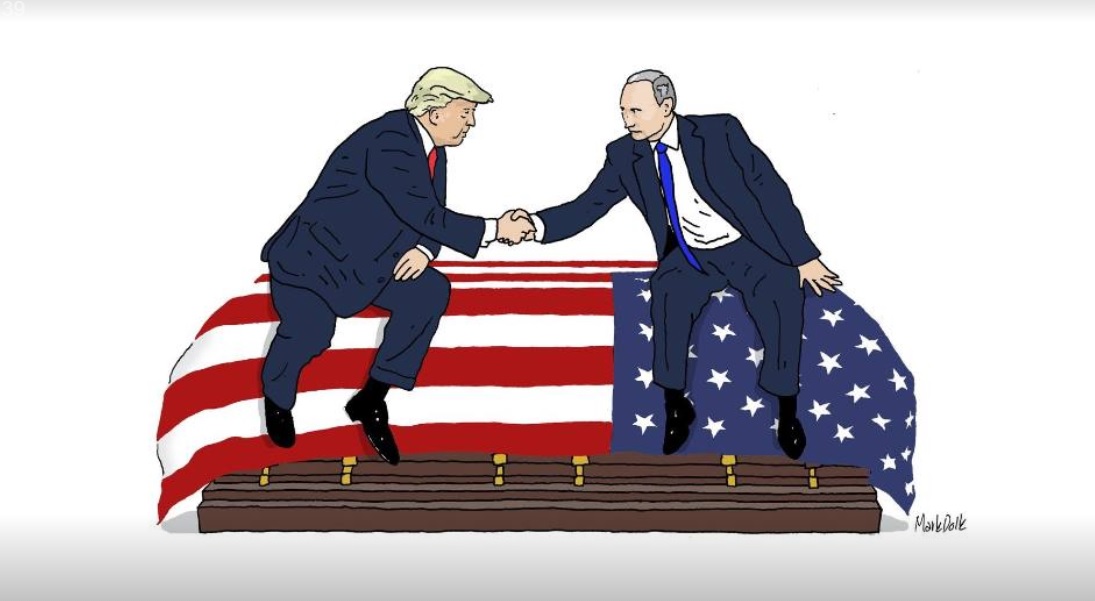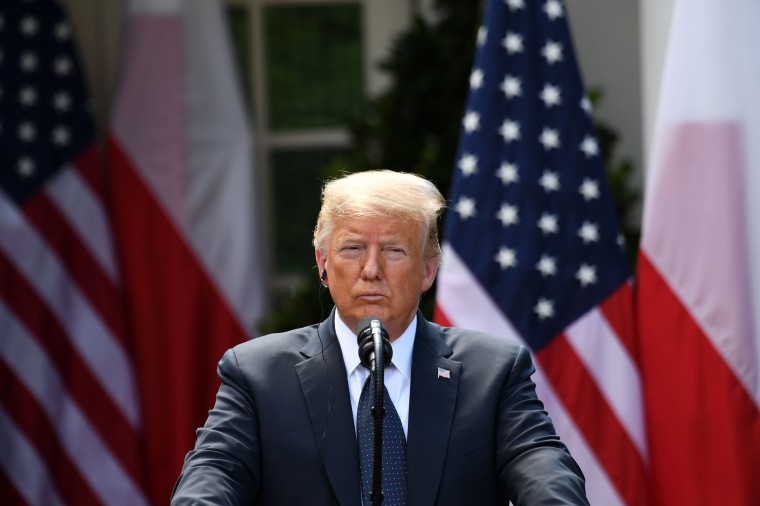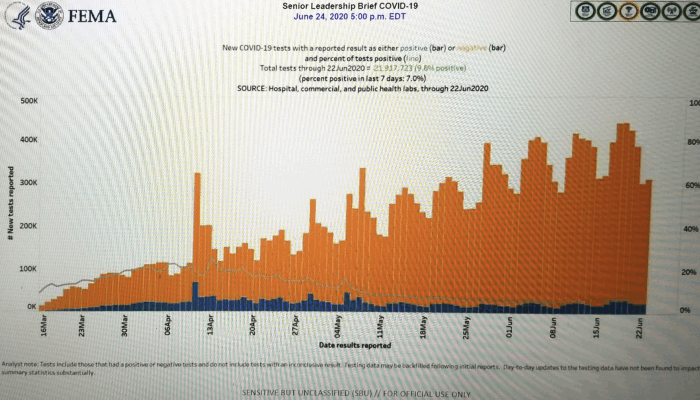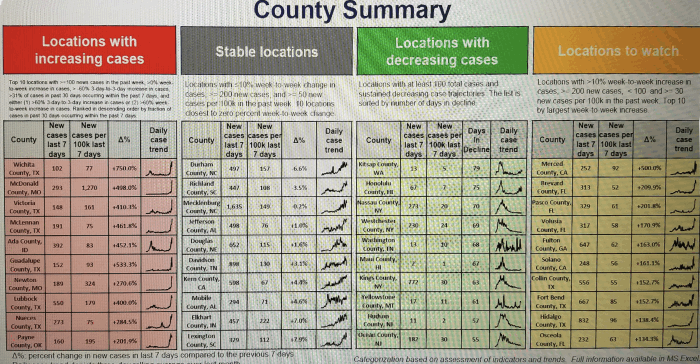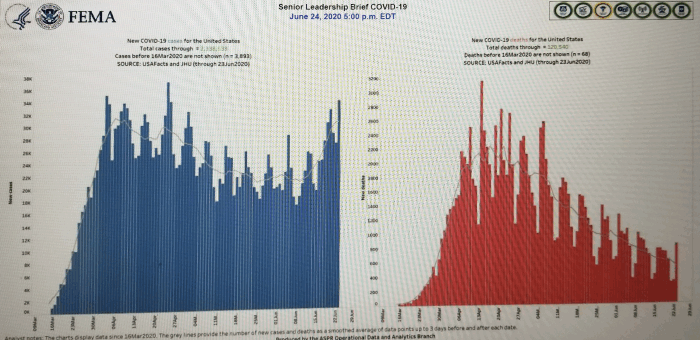President Trump is seeking reelection with the
lowest approval rating of any incumbent president in 40 years. A series of events initially seen as chances for the president to shine — the coronavirus pandemic, the civil unrest that followed the killing of George Floyd — have only deepened his problems and increased support for Democratic nominee Joe Biden.
But the president has largely avoided the sort of “dead man walking” analysis that once greeted Jimmy Carter and George W. Bush. The reason is the 2016 election, which
humbled the president's smuggest critics and broke the reputation of many election
prognosticators. The argument against electoral despair is the
same argument Trump makes about rebuilding the post-pandemic economy: He did it once, and he can do it again.
There's a catch. Trump campaign veterans and his supporters have almost completely erased the role of two “October surprises” that damaged Hillary Clinton, in an election so close that any individual factor could have decided it. The first was a series of hacks into Clinton campaign email, culminating in the release via WikiLeaks of more than 20,000 pages from the personal account of John Podesta. The second was the decision of then-FBI Director James B. Comey to announce, in a letter to Congress, that there would be a probe of emails found on a Clinton aide's laptop.
Polling found that both stories damaged Clinton, possibly moving the last undecided voters to Trump and sealing his win. But those stories are increasingly left out of the campaign's theory about what happened in 2016. And neither the Biden nor Trump campaign can really plan for revelations or scandals that could come.
Either event, the hack or the Comey letter, would have been a fantastic gift to any candidate. Each was welcomed and promoted by Trump, who sometimes spent minutes of his rally speeches going over the latest revelations from Podesta's email or latest speculation about how Clinton could go to prison.
“I think it’s the biggest story since Watergate,” Trump
told the New York Times in late October 2016, the day that Comey opened his email probe and informed members of Congress. “I think this changes everything.”
The boost Trump got from both events was crucial but gets left out of arguments for how the president can patch his coalition back together. For the president and his allies, the story of 2016 was that a first-time candidate rallied the “forgotten man,” and any speculation about how the hacks or Comey affected that is sour grapes. “The Democrats made up and pushed the Russian story as an excuse for running a terrible campaign,” Trump
tweeted in March 2017, an argument he'd continue making through his term.
For Democrats, the WikiLeaks and Comey crises simply aren't worth reliving. The party's left viewed them as a
diversion, a way of avoiding a reckoning over Clinton's policies and ensuring that the people who lost that election would remain in power. And Clinton's allies were queasy about the implications: that after all their work, Anthony Weiner's
sexting habit had indirectly cost them the presidency.
“If the election had been on October 27, I would be your president,” Clinton
said six months after the election, referring to the day before the Comey letter.
Since then, the Trump administration has effectively fought the Russia story to a draw, with Democrats focused on beating him this year and with the president's supporters convinced that the real 2016 scandal was that the FBI surveilled his campaign. But the voters of 2016 had no idea that the Trump campaign was being watched. To the contrary,
pre-election headlines reported that the FBI found “no clear link to Russia” in the Trump campaign.
Clinton, by that time, had been repeatedly thrown off course by the theft of Podesta's emails. The trove included at least one piece of news that Clinton had tried to conceal; the text of paid speeches she'd given after leaving the State Department. But the offhand communications between her staffers inspired waves of negative stories that Trump benefited from. They were as frivolous as
a comment one Catholic adviser made about right-wing Catholics (“Her campaign staff should apologize to people of faith,” said Mike Pence) and as impactful as conversations about art and
Italian food that spawned the
unending “Pizzagate” conspiracy theory.
Questions about the stolen emails even shaped the final two presidential debates between Trump and Clinton. In the second, Clinton was asked to defend a comment about negotiating from “public and private positions,” which came from a paid speech published in the emails. When Clinton pivoted to attacking Russian hackers, Trump mocked her for shifting blame from her own behavior.
“Anything wrong happens, they like to say the Russians,” Trump said. “She doesn’t know if it’s the Russians doing the hacking. Maybe there is no hacking. But they always blame Russia.”
In the third debate, moderator Chris Wallace asked Clinton to explain remarks she'd made about creating a “hemispheric Common Market with open trade and open borders.” Clinton once again followed the strategy of ruling the material out of bounds because of how it was obtained, and Trump rolled his eyes again, before citing a different hacked email before tens of millions of viewers.
“WikiLeaks just actually came out,” Trump said. “John Podesta said some horrible things about you, and, boy, was he right.”
Before the election, the WikiLeaks trove and the Comey letter were universally seen as boosts to Trump. At the very least, the drumbeat of negative Clinton news helped the Republican nominee push past his own negative headlines. The first email dump came
just an hour after The Washington Post first reported on a tape of Trump bragging about sexual assault, and the Comey letter came after millions of early votes were cast; Trump
encouraged voters who'd already marked ballots for Clinton to get them back and vote for him.
In Trumpworld's revised history of the campaign, the October surprises didn't change the outcome. “We didn't need WikiLeaks,” White House adviser
Kellyanne Conway said in a 2017 interview with ABC News. “We had Wisconsin.”
But Trump had both. At his final two pre-election rallies in Wisconsin, the Republican nominee cited stolen emails to further his case against Clinton. At an Oct. 17 stop in Green Bay, Trump touted “another series of emails” from the Clinton campaign to argue that Clinton was being controlled by “international donors” — a garbled
reference to Clinton aides talking about whether to take donations from Americans registered as lobbyists for foreign countries.
At a Nov. 1 stop in Eau Claire, his last visit to the state before the election, Trump spoke for several minutes about Podesta's early 2015
reference to “dumping” emails and predicted a “constitutional crisis” if a candidate whose emails kept inspiring FBI probes made it to the White House.
“In a newly released email, John Podesta has been caught saying, ‘We need to dump all of these emails.’ Can you believe that?” Trump said, misrepresenting a 2015 message about making Clinton's emails public as a message about destroying them. “It’s WikiLeaks!”
The combination of WikiLeaks and the Comey letter was crucial for Trump, syncing up with his message that Clinton was uniquely corrupt. Five days before the election, Fox News anchor Bret Baier even
reported, incorrectly, that Clinton might be indicted.
Yet in the years since the election, across a series of interviews and memoirs, Trump allies have hardly mentioned the stories that helped him control the narrative for the campaign's final stretch. Just two memoirs deal with them. In “Team of Vipers,” former White House communications aide Cliff Sims gives one line to the WikiLeaks emails trove, misidentifying them as from “Hillary Clinton’s private email account,” instead of Podesta's. But he spends two full pages on a small scene inside Trump Tower’s war room as the Comey story breaks.
“Back in Trump Tower, the atmosphere was euphoric,” Sims writes. “For the first time since Access Hollywood, we saw an opening that might actually lead us to victory.”
In “Let Me Finish,” former New Jersey governor Chris Christie (who, like Sims, does not have any role in the current campaign) is even blunter about the Comey letter, recounting a conversation with Trump, whom he'd once said would need “a break” to win the election.
“Is that the break you were talking about?” Trump asked Christie in a phone call.
“Yes, it is,” Christie said.
But in Christie's telling, the WikiLeaks trove was a “running rally punchline” that got Trump into trouble when the probe of Russian hacking began, not a benefit that peeled votes from Clinton. “He was just riffing on media reporters and getting a reaction,” Christie wrote. “Most people in politics hope bad stuff will come out about their opponents.”
In “Understanding Trump,” Newt Gingrich's quick turnaround book about the election, Comey and WikiLeaks are not mentioned at all. Trump's victory is attributed to smart decisions he made, like a last-minute Minneapolis rally that spilled into Wisconsin media markets. “It was the smaller, less expensive, practical Trump team that figured out how to get the keys to the American political system,” Gingrich writes.
In “Let Trump be Trump,” former Trump campaign manager Corey Lewandowski and strategist David Bossie were out of the inner circle by October 2016. The only reference they make to either October surprise is a compliment to how Trump derided reports that the hackers were Russian: “The phrase 'four-hundred-pound hacker' immediately became an Internet meme.” In “With All Due Respect,” a memoir seen as Nikki Haley's initial push into the 2024 presidential campaign, the former U.N. ambassador offers the company line on 2016: “Donald Trump won because he reached a culture in America that has felt ignored and voiceless,” and “the things that fueled his victory aren't easily captured in polls or political talking points.”
Was Trump going to lose before the Comey letter? Chris Christie thought so. Were the Podesta emails crucial to shifting negative attention back from Trump to Clinton in October 2016? Roger Stone thought so.
But the popular memory of Trump's campaign is that he built on his base of white voters and tamed his rhetoric in the race's final stretch, giving Clinton little to attack and swing voters a lot to like. When Republicans urge the president to change his tone, it's because
they credit him for doing so in the final stretch of the last election, and credit that for his victory.
Trump did avoid making the sort of gaffes that often capture news cycles now. It worked, in part, because of the drumbeat of negative news and revelations about Hillary Clinton, something that even
traditional investigations into Joe Biden have not been able to match.
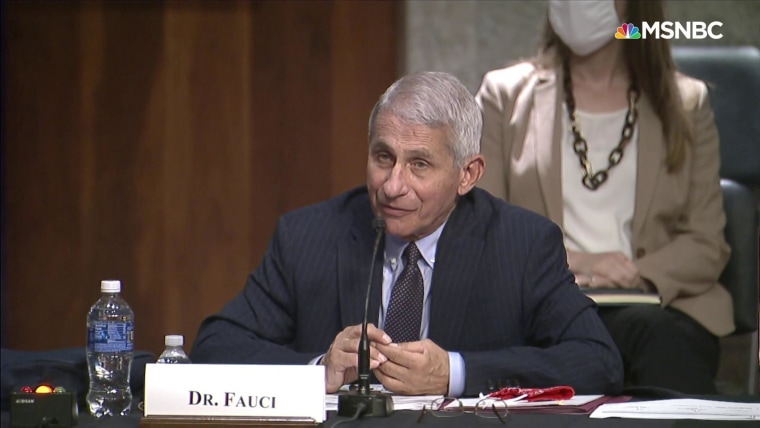

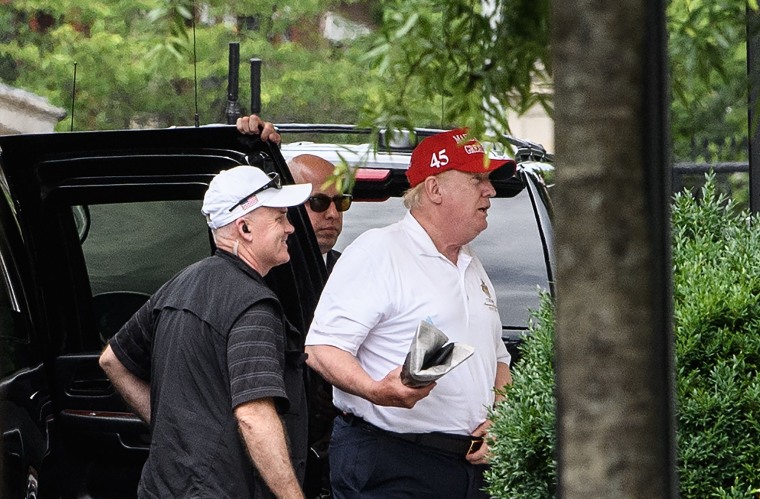 e offending tweet because he was on the course at his golf club and had put down his phone, officials said.
e offending tweet because he was on the course at his golf club and had put down his phone, officials said.